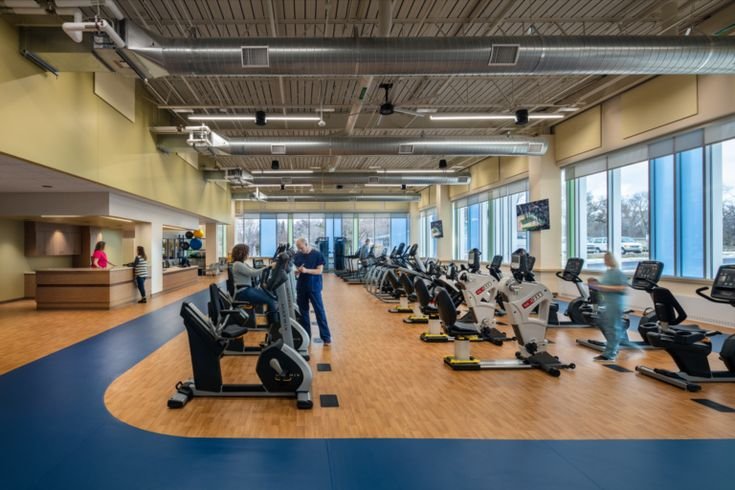Understanding Acadia Healthcare’s Role in Behavioral Health
Acadia Healthcare is a leader in behavioral healthcare services, specializing in the treatment of mental health disorders and addiction. With over 200 facilities across the United States, Acadia offers a wide range of services, including residential treatment, outpatient care, and acute care services. The company’s holistic approach to care sets the standard for addressing the growing need for mental health and addiction treatment.
Yet, with growing awareness around mental health and addiction, many healthcare providers are entering the market, each offering innovative solutions and further deepening competition.
Key Achievements and Strengths of Acadia Healthcare
Before diving into the competitive landscape, it’s important to understand what sets Acadia Healthcare apart, including its core strengths:
- Extensive Network: With more than 200 centers, Acadia’s reach across the United States ensures accessibility for patients across diverse geographic areas.
- Specialized Focus: By focusing exclusively on behavioral health and addiction treatment, Acadia establishes itself as an expert in these fields.
- Holistic Care Model: Acadia employs a patient-centric approach by offering personalized treatment plans that include therapy, medication-assisted treatment, family support, and additional resources.
- Strong Partnerships: Collaborations with insurance providers make treatment more accessible to patients while strengthening Acadia’s relationships within the broader healthcare ecosystem.
Mapping the Competitive Landscape
While Acadia remains a dominant force within the healthcare sector, it faces competition from other established names as well as innovative newcomers. Here are some of its key competitors in the behavioral health and addiction treatment industry.
1. Universal Health Services, Inc. (UHS)
UHS operates behavioral health facilities alongside its acute care hospitals and ambulatory services. With one of the largest networks of psychiatric hospitals in the country, UHS offers an impressive range of services that align with Acadia’s behavioral healthcare offerings.
- Key Strengths:
-
- Large-scale operations with over 330 facilities in the U.S.
- Strong integration of general healthcare and mental health services.
- Differentiation Point:
- Key Strengths:
-
- Expertise in opioid addiction and MAT programs.
- A streamlined outpatient model that focuses on accessibility.
- Differentiation Point:
- Key Strengths:
-
- Pioneering virtual behavioral health solutions.
- User-friendly mobile apps offering patients support on the go.
- Differentiation Point:
- Key Strengths:
-
- Comprehensive programs focusing on relapse prevention and long-term recovery.
- A national network of inpatient facilities.
- Differentiation Point:
- Key Strengths:
-
- Affordable pricing compared to traditional in-person therapy.
- 24/7 accessibility tailored to time-strapped or remote users.
- Differentiation Point:
-
- Both companies provide a fully digital experience, appealing to individuals seeking immediate access to care without barriers like location or scheduling conflicts.
How Acadia Healthcare Can Leverage Competitive Insights
While Acadia is uniquely positioned as a leader in behavioral healthcare, the competition outlined above underscores the need for continuous innovation and adaptability. To strengthen its market dominance, Acadia can take the following steps to refine its strategy.
Invest in Digital Solutions
The future of healthcare is digital, and the rising popularity of telehealth-based mental health solutions demonstrates the demand for remote access to care. By investing in AI-powered therapy tools, virtual counseling platforms, and mobile apps, Acadia could broaden its offerings and make care more accessible.
Expand Niche Treatment Segments
Following the example of competitors like Behavioral Health Group, Acadia could invest further in specialized treatment programs. For instance, focusing on trauma-informed care, LGBTQ+ mental health programs, or advanced opioid addiction treatments could position Acadia as the go-to provider in underserved niches.
Build a Strong Community Presence
While Acadia already has an extensive national network, fostering deeper community partnerships could help strengthen its brand. Collaborations with local organizations, public health programs, and schools would enhance its reputation at the grassroots level.
Enhance Aftercare Services
Building on the approach of American Addiction Centers, Acadia should further develop its aftercare programs. By offering follow-up support through digital platforms, peer mentoring groups, or ongoing therapy appointments, it can help patients sustain long-term recovery.
Strengthen Marketing and Education Initiatives
Raising awareness is critical in behavioral health. Acadia can take cues from telehealth startups and invest in content marketing, educational campaigns, and webinars to engage patients and provide easy-to-understand yet highly valuable insights about mental health and addiction treatment.
Driving Progress, One Patient at a Time
The behavioral health industry is evolving rapidly, with Acadia Healthcare playing a pivotal role in shaping its direction. The rise of competitors like UHS, BHG, AAC, and innovative startups indicates that consumer expectations are changing. Patients want convenient, effective, and personalized care.
Acadia Healthcare holds a strong position due to its extensive network, specialized focus, and commitment to holistic care. By analyzing its competitors and adapting its services to meet new demands, Acadia can maintain its leadership while continuing to innovate the standards for mental health and addiction treatment.
Healthcare is, at its core, about improving lives—and competition fuels the innovation needed to achieve that.

